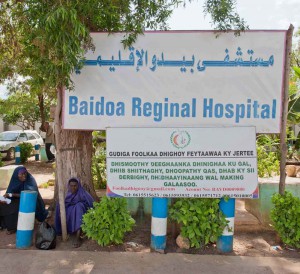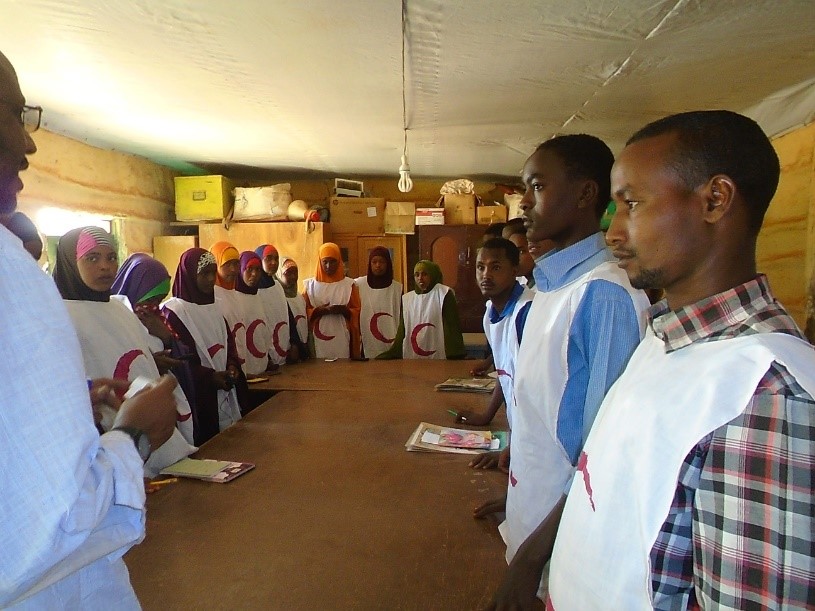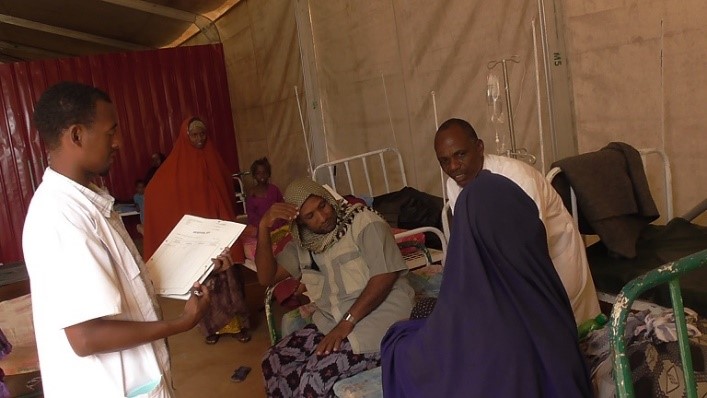Baidoa Regional Hospital recently admitted more than 220 patients affected by a deadly outbreak of cholera. Seven people succumbed to the disease since the first case was confirmed in the beginning of December 2015. Despite the large number of people affected by the outbreak, the hospital was able to cope, thanks to support from the International Committee of the Red Cross (ICRC) and the Somali Red Crescent Society (SRCS).

As the number of admissions increased over the month of December, hospital resources were overstretched and the ICRC provided medical supplies and helped erect an overflow tent to host those who required isolated care.
“I have seen patients as young as a 5-year-old boy who was brought in by his mother Fadhumo, gradually improving and the mother is optimistic he will fully recover,” said Mohamed Aydurus, one of the thirteen volunteers deployed by the SRCS to address staffing needs of Baidoa Regional Hospital.
“Now that my son is out of danger, I will take precautions such as boiling water and cleaning my surrounding environment at home.” said Fadhumo, a resident of Baidoa.
Most of the cholera-affected patients reside in Baidoa while some are IDPs from the outskirts of the town.
Local elders and religious leaders have helped sensitize the community on the need for good hygiene practices as a way of countering the outbreak.
“We have started to embark on training SRCS volunteers to perform hygiene promotion at household level,” said Maurizio Campailla, who is in charge of coordinating health programs for the ICRC in Somalia.
According to Maurizio, ICRC has also put in place training for the hospital staff so that they are able to cope during such emergencies.

SRCS Baidoa branch secretary Hussein Dahir (left) briefs volunteers at a meeting in Baidoa Regional Hospital. These briefing sessions are where the volunteers are assigned their roles and responsibilities. ©ICRC/Mohamed Hassan
As of the end of January 2016, most of the patients had been discharged with only six still admitted. Both the ICRC and the SRCS are closely monitoring the situation in Baidoa should the epidemic recur.
The ICRC has been present in Bay region and particularly in Baidoa where it has been supporting the Baidoa Regional Hospital’s surgical department since June 2014 and the stabilization center since May 2015. The stabilization centre places malnourished children under a supplementary feeding program up until they attain their ideal weight.


